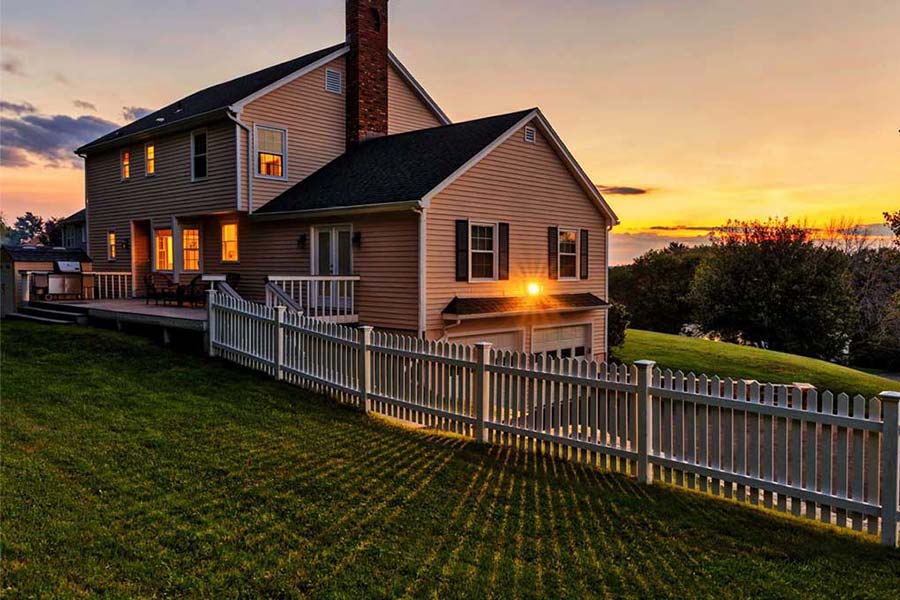Nearly 33% of Canadians rent their homes. And, this percentage is rising as renting is becoming more popular than homeownership.
Even with these large numbers, many renters don't understand the amount of money that they should be putting into their property. In fact, many people end up spending too much on their rent. And, because of inflated prices, they don't even realize it.
So, if you're wondering how much you can afford to rent, keep reading. We have everything you need to know from spending limits to renting alternatives.
How Much to Spend on Rent in Canada
Unfortunately, rent has been increasing. Of course, rent prices (and all prices) increase with inflation. But, these rental prices are increasing at a quicker rate than the inflation rate.
As of now, the national average for housing expenses in Canada is $1,404 per month. This is much higher in downtown areas, but we'll discuss more specific numbers later on.
Considering that the average expenses for one person living in Canada are $934 a month, this doesn't leave a lot of wiggle room for extra expenses or savings. This leaves many of us at a disadvantage when it comes to budgeting for and being able to afford rent.
That's why it's important for you to understand how much rent you should pay based on your current income. Rent, especially in major cities, is becoming harder and harder to budget for. So, you should be increasingly careful about the rental agreements that you're signing.
You should also prepare to have a higher up-front expense if you're without rental history. Since your landlord can't gauge how reliable or unreliable of a renter you are, they may charge you a higher security deposit before the lease starts. Luckily, you'll get this money back at the end of the lease if you take care of the property well.
Once you've signed your lease, you shouldn't worry about rent increasing without notice. In fact, the provincial law in Canada prevents rent increases more than once per year for tenants. And, the landlord has to give at least three months of notice for such an increase on rolled-over fixed-term leases.
However, you should know that this notice is not required for fixed-term leases. This is because you're signing onto the rate you get when you sign the rental agreement.
What Is the 30% Rule?
The 30% rule is a popular rule of thumb surrounding rental payments. Many financial experts believe that each person should spend no more than 30% of their gross income on rent.
So, if you earn $2,800 a month before taxes, you should be paying no more than $840 per month on rent.
This guideline offers sound advice, but it doesn't apply to every renter. Those who live in smaller towns can pay 15% of their gross income in rent. On the other hand, those who live in big cities may need to pay more than 30% of their gross income.
How Much Should I Spend for Rent With a $50,000 Salary?
If you're making $50,000 per year, that means that you're making about $4,100 per month.
Now, you can calculate 30% of $4,100. This comes out to $1,230.
Therefore, according to experts, you should be spending no more than $1,230 per month on rent.
How Much Should I Spend for Rent With a $55,000 Salary?
If you're making $55,000 per year, that means that you're making about $4,500 per month. We divided $55,000 by 12 to get this number.
Now, you can calculate 30% of $4,500. This comes out to $1,350.
Therefore, according to experts, you should be spending no more than $1,350 per month on rent.
How Much Should I Spend for Rent With a $60,000 Salary?
If you're making $60,000 per year, that means that you're making about $5,000 per month. We divided $60,000 by 12 to get this number.
Now, you can calculate 30% of $5,000. This comes out to $1,500.
Therefore, according to experts, you should be sending no more than $1,500 per month on rent.
What Is the Average Rent By Major City?
As we mentioned earlier, the average rental prices in major cities in Canada are more expensive than standard prices. Plus, the prices of daily living are also higher here. This means that you're going to be paying more for things like food and gas.
When you're looking for a place to live in Canada, you should consider these cities if they fit into your budget.
Toronto
In Toronto, these are the average rent prices:
- One-bedroom - $1,832
- Two-bedroom - $2,416
Toronto is one of the most expensive cities to live in, so you should make sure that you're accounting for these higher rent prices if you're planning on renting here.
Vancouver
In Vancouver, these are the average rent prices:
- One-bedroom - $1,855
- Two-bedroom - $2,636
Of all of the cities in Canada, Vancouver is the most expensive when it comes to renting prices. According to the 30% rule, you should be making more than $105,000 per year to rent a two-bedroom.
Considering that younger people with younger salaries are the ones who rent most often, it's unlikely that you'll be able to follow the 30% rule here.
Ottawa
In Ottawa, these are the average rent prices:
- One-bedroom: $1,565
- Two-bedroom: $1,993
According to the 30% rule, you should be making just over $60,000 per year to live in a one-bedroom rental space.
With this, you may be starting to see the trend that occurs in big cities. These renters rarely have the ability to follow the 30% rule.
Calgary
In Calgary, these are the average rent prices:
- One-bedroom: $1,178
- Two-bedroom: $1,470
Calgary is one of the major cities that makes it just a little bit easier to budget. You can be making less than $50,000 per year and still afford a one-bedroom in your budget.
Saskatoon
In Saskatoon, these are the average rental prices:
- One-bedrooboxparm: $892
- Two-bedroom: $1,075
As you can see, Saskatoon is one of the least expensive cities to live in. This may be a better choice for individuals who are making a lower salary. It's also a great option for those of you who want to live on your own without a roommate.
Montreal
In Montreal, these are the average rental prices:
- One-bedroom: $1,420
- Two-bedroom: $1,860
As you can see, Montreal is one of the other more populated cities in Canada. So, you should consider living here with others so that you can split the rent.
Looking for Rent Alternatives
If renting doesn't seem to be the best option for you right now, you have other options. You can look into getting a mortgage, living with roommates, renting a room in a house, and other options.
If you want to live alone, we highly recommend looking into smaller cities or the outskirts of major cities. It may also help to look at small mortgages for townhouses and/or condos.
Renting a Room
If you can't avoid an entire place, you can consider renting a room from a house. Many homeowners have an extra room in the basement or attic. And, they'd love to have the extra income for a room they aren't using.
Getting a Roommate or Two
Another option is to consider getting a roommate to rent with you. You can split the rent two or even three ways. Thus, you can save more money.
Gather a few friends or find others who are looking to rent.
Living Slightly Outside of a Major City
By living just on the outskirts of a major city, you can take advantage of less expensive rent prices. Yes, you won't be in the middle of the city at all times. But, you'll still be close enough that you can enjoy all of the good things that the city has to offer.
Plus, after working and walking in the city all day, you may enjoy a little bit of a break on the outside. It may be nice to get away from the sirens and crowded streets for a while.
You should also look into public transportation for getting you to and from the city every day. You won't want to deal with traffic and it will save you even more money.
Protecting Yourself With Renter's Insurance
When you're deciding how much to spend on rent in Canada, it should come down to your income and your preferences. Don't live outside of your means or you won't be able to sustain your living.
Whether you decide to go for a smaller rent outside of the city or pick up a side hustle, you should make sure that you're balancing your budget.
And, to protect yourself, you need to invest in renter's insurance. This financially protects you if things become damaged while you're renting.
Luckily, our team at Insurdinary has put together a list of renter's insurance options for you.





